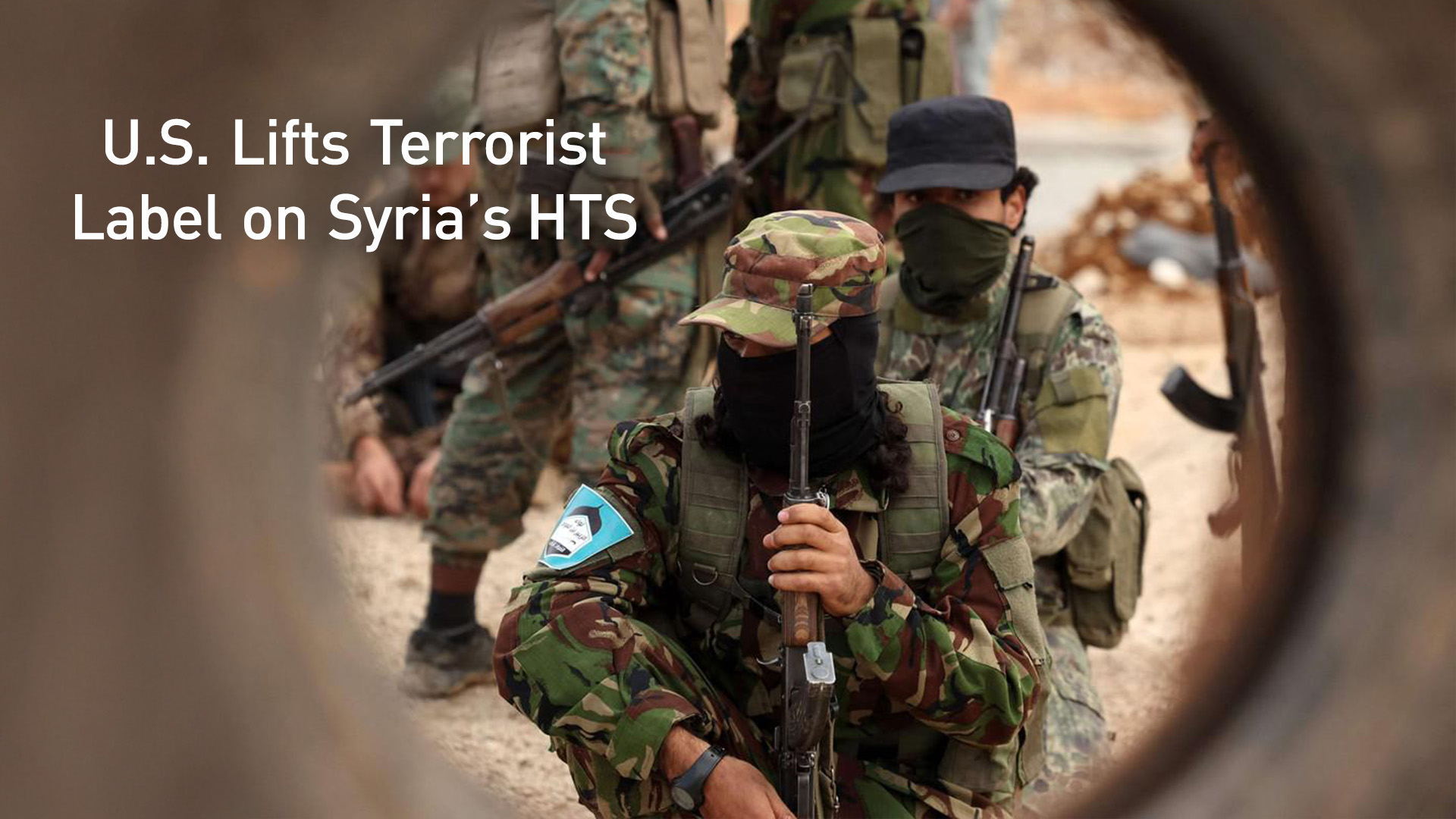U.S. Lifts Terrorist Label on Syria’s HTS Amid Strategic Regional Shift
The U.S. revoked HTS’s terror designation, citing reforms under Syria’s President Sharaa. Part of Trump’s broader Middle East strategy, the move aligns with the Abraham Accords, aiming to counter Iran, promote regional peace, and encourage Arab-Israeli normalization.

By Kamaran Aziz
ERBIL (Kurdistan24) — In a major policy shift, the United States announced on Monday that it is revoking the Foreign Terrorist Organization (FTO) designation of Hayat Tahrir al-Sham (HTS), the former al-Qaeda affiliate that played a pivotal role in removing the Assad regime from power in Syria. The decision, effective July 8, 2025, was announced in a press statement by U.S. Secretary of State Marco Rubio, who cited "the positive actions taken by the new Syrian government under President Ahmed al-Sharaa."
“This FTO revocation is an important step in fulfilling President Trump’s vision of a stable, unified, and peaceful Syria,” Rubio said, referencing the momentum gained since the June 30 Executive Order that began the removal of most sanctions on Syria. He linked the move to President Trump’s May 13 promise to deliver sanctions relief during a regional diplomatic visit to Saudi Arabia.
According to the Washington Post, the State Department’s decision marks a significant recalibration of U.S. policy, easing restrictions that have long constrained Syria’s access to international finance. Aaron Y. Zelin, a senior fellow at the Washington Institute for Near East Policy, noted that the revocation would enable the Syrian government to access capital beyond humanitarian aid and World Bank loans, potentially accelerating the country’s reconstruction. “This will be an ongoing process that the U.S. government and bureaucracy will be continuing to deal with for at least the next six to 10 months,” Zelin told the Washington Post.
HTS, previously known as Jabhat al-Nusra, had been listed as a terror organization for its links to al-Qaeda and extremist activities during Syria’s long civil war. However, following internal transformations and the group’s role in the ousting of Bashar al-Assad in December 2024, HTS has rebranded under the leadership of Sharaa, who has distanced the group from its earlier ideology.
The decision to revoke the designation is part of a broader U.S. strategy to realign its role in the Middle East, with Syria emerging as a central piece. According to Fox News Digital, President Trump’s recent moves—including lifting sanctions and opening talks with Syria’s new transitional government—are aimed at countering Iranian influence, restoring U.S. strategic leverage, and supporting allies such as Israel and Jordan.
At a White House briefing, press secretary Karoline Leavitt framed the policy change as a campaign promise fulfilled. “He’s committed to supporting a Syria that is stable, unified, and at peace with itself and its neighbors,” she said.
Former U.S. officials say the strategic recalibration is underpinned by concrete developments on the ground. David Schenker, former Assistant Secretary of State for Near Eastern Affairs, told Fox News that Syria has fulfilled several key demands from the United States, including allowing international inspections of its nuclear and chemical facilities, cooperating on counterterrorism, and dismantling Iranian posts inside the country. “The sanctions did their job. There’s zero economic life in the country. But Trump is giving Syria a chance to succeed,” he said.
Javed Ali, a former National Security Council official, echoed this sentiment, describing the move as a “strategic calculation.” Ali noted, “A Syria that no longer hosts Iranian proxies, cooperates on counterterrorism, and integrates with Arab neighbors serves U.S. interests on every front.”
The policy shift also aligns with the Trump administration’s broader goals of expanding the Abraham Accords and building a regional coalition against Iran. Schenker emphasized that Syria’s public distancing from Tehran and reported steps to block Hezbollah shipments had generated cautious optimism. “The president is genuinely focused on expanding the Abraham Accords. He sees Syria as the next possible candidate,” Schenker told Fox News Digital.
Nevertheless, the policy remains fraught with complexity. Charles Lister of the Middle East Institute warned that while Syria’s stabilization could unlock regional integration and reduce U.S. military commitments, tensions with Israel remain unresolved. “Syria remains officially at war with the Jewish state,” he noted, “and jihadist factions inside Syria oppose any normalization.”
According to Washington Post reporting, the decision to lift the HTS designation is expected to ease recruitment from the Syrian diaspora and signal a broader reintegration of Syria into the international system. The article noted that international banking transactions resumed on June 19 and that U.N. sanctions relief could follow, pending further U.S. diplomatic efforts.
U.S. Special Envoy for Syria Tom Barrack confirmed in a press conference in Beirut that indirect dialogue had begun between Israel and Syria. A fact sheet accompanying last week’s executive order emphasized that "working with Syria can help secure peace in the Middle East."
Despite these encouraging developments, challenges remain. Ali cautioned that deeper U.S.-Syrian cooperation could raise new security concerns, particularly if Syria eventually seeks a reduction in the U.S. troop presence. Approximately 1,000 U.S. forces are currently stationed in northeastern Syria, serving as a vital node for counterterrorism operations.
“The facts on the ground don’t yet reflect the progress being made behind closed doors,” Lister warned. “We just have to hope that those two dynamics meet in the middle, and things calm down on the ground as well.”
As the U.S. embarks on a new chapter in its Syria policy, observers will be watching closely to see whether the Trump administration’s gamble pays off — not just in terms of sanctions relief, but in achieving a broader recalibration of Middle East diplomacy.